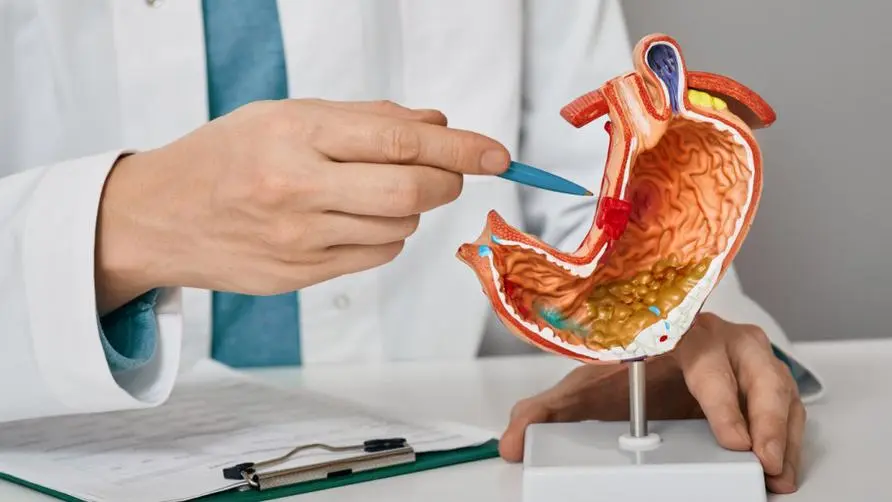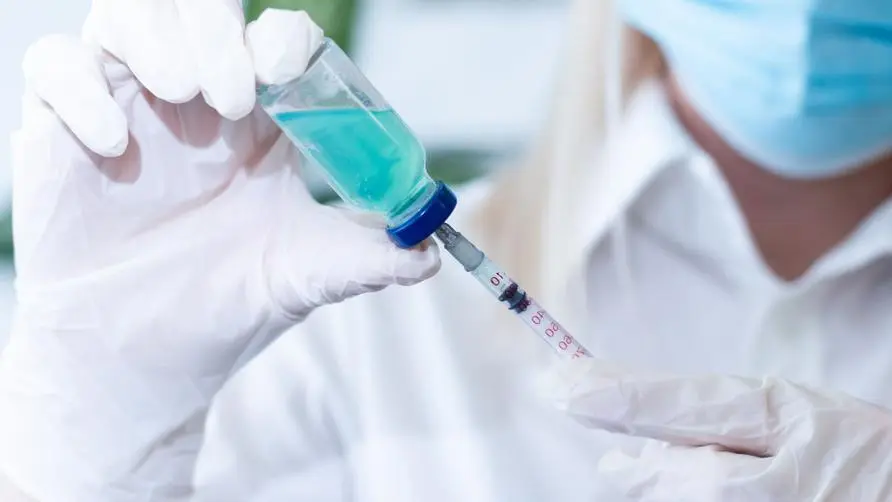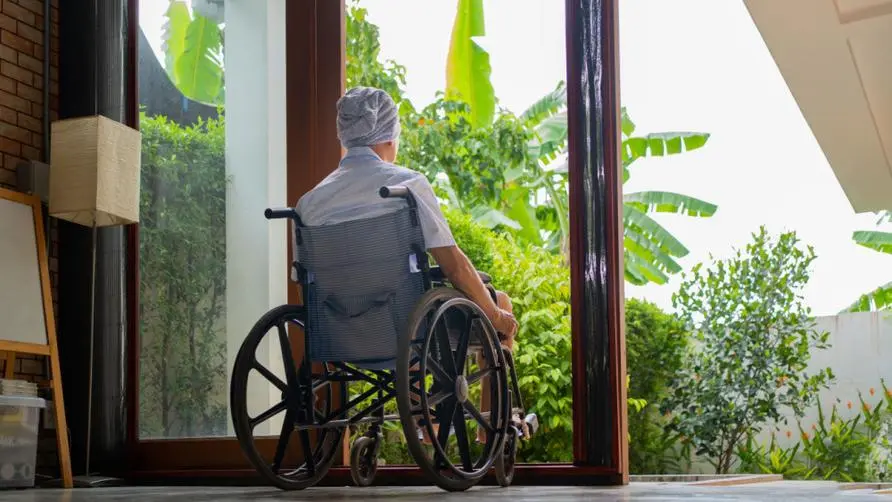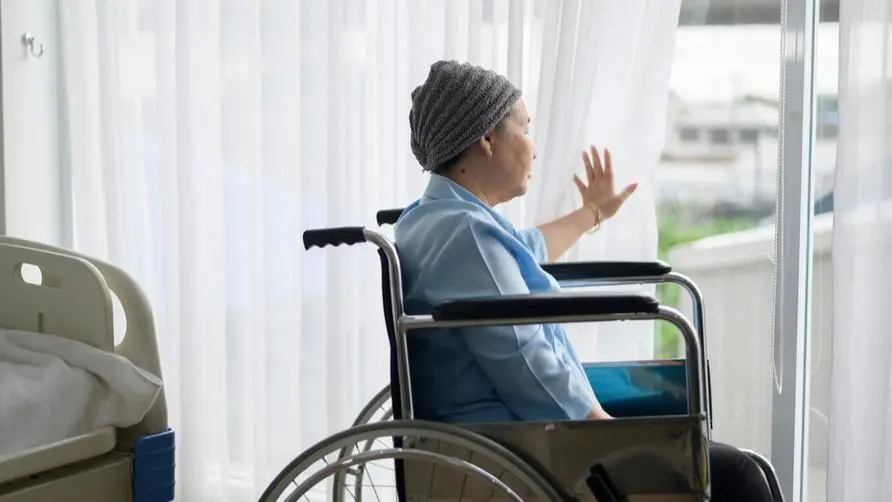Smoking and eating too much salt may cause a "tetralogy of gastric cancer"! Doctor: Add more "1 nutrition" to your diet to reverse precancerous lesions

The cancer rate increases by 6% each year! What is the “Quartet of Gastric Cancer”?
Many people know about the “liver cancer trilogy”. In fact, the progression of gastric cancer can be roughly divided into “four steps”? Dr. Qian Zhenghong, director of the Liver Disease Prevention and Treatment Center of Keelung Chang Gung Memorial Hospital, pointed out in a social post that the four steps of gastric cancer are “chronic atrophic gastritis”, “intestinal metaplasia” and “dysdifferentiation” from first to last. The final rate is 6% per year. Chance of gastric cancer.
Dr. Qian Zhenghong said that most people’s gastroscopy reports are “superficial gastritis” and a small number are “chronic gastritis.” These two types of problems are not serious; however, about 15% suffer from “chronic atrophic gastritis.” Atrophic gastritis (atrophic gastritis) shows under gastroscopy that the original folds of the stomach wall have become flattened due to long-term inflammation, and the gastric mucosa has become thinner and atrophic, and the stomach’s ability to digest food has also become poorer.
Risk factors for atrophic gastritis include Helicobacter pylori infection, autoimmune gastritis, age, smoking, high-salt diet, and chronic bile acid reflux. The gastric mucosa is stimulated by carcinogens for a long time and is prone to genetic mutations; compared with normal people, atrophic gastritis increases the risk of gastric cancer 7 times, with 0.1%-0.3% of patients developing gastric adenocarcinoma every year, or 0.4% every year. -0.7% chance of neuroendocrine tumors.
If gastric disease is not properly treated at this stage, the incidence of gastric cancer may increase by 85% within 10 years.
Most atrophic gastritis will not progress to gastric cancer immediately, but will first go through “intestinal metaplasia”. “Metaplastic” means transformation. When the gastric mucosa is repeatedly injured, the new gastric mucosa that should have grown back does not grow well. Instead, it proliferates like intestinal mucosa. This means that “gastric cells transform into intestinal epithelial cells.” “The disease is called “intestinal metaplasia” or intestinal metaplasia.
Dr. Qian Zhenghong pointed out that intestinal metaplasia can be seen as small gray-white protrusions under gastroscopy, which may appear locally or in a large area in the stomach. A large-scale follow-up analysis in 2008 found that the annual risk of gastric cancer for people with intestinal metaplasia was 0.25%, and the cumulative risk over 10 years was 1.6%, which can be regarded as a risk of precancerous lesions.
Dr. Qian Zhenghong said that after intestinal metaplasia occurs in the stomach, it will go through the steps of “poor differentiation” or “dysplasia” before transforming into gastric adenocarcinoma. This stage is an important indicator for judging the risk of cancer. It can also be considered as a precancerous lesion. In the case of gastric dysdifferentiation, cells have abnormally proliferated, and their shape and arrangement have been significantly changed.
In addition, dysdifferentiation can be subdivided into “lowly differentiated” and “highly differentiated”. The annual gastric cancer incidence rate for the former is 0.6%; for the latter, it rises to 6%, with a cumulative probability of 60%-85% over 10 years. %. As for whether there is gastric dysdifferentiation, it can only be determined by tissue sections under a microscope. General gastroscopy alone cannot make the distinction.
Can taking folic acid reverse intestinal metaplasia and atrophic gastritis? Gastroenterologists reveal the top 15 anti-gastric cancer foods
Dr. Qian Zhenghong explained that whenever the gastroscopy report is explained in the outpatient clinic and the patients are informed of the clinical significance of intestinal metaplasia, in addition to being frightened, the patient’s biggest concern is “how to eat to improve intestinal metaplasia.” “In fact, suffering from intestinal metaplasia is not caused by “eating less”, but by doing more “stomach-injurious behaviors”! Therefore, getting rid of the bad habits that injure the stomach in life is the first priority. "
Dr. Qian Zhenghong pointed out that if you want to curb the progression of precancerous lesions or even reverse intestinal metaplasia, folic acid supplementation may be a feasible approach. A systematic review of literature published in 2022, after analyzing 1,252 cases, pointed out that folic acid supplementation has the following benefits:
Folic acid supplementation can increase the chance of reversing atrophic gastritis by 61%.
Supplementing folic acid can increase the chance of reversing intestinal metaplasia by 77%.
The most significant effect is to supplement 20-30 mg of folic acid every day for 3-6 months.
Folic acid is a water-soluble vitamin, an important raw material that promotes DNA synthesis and DNA methylation, and helps repair gastric mucosa. There have been many studies in the past testing whether folic acid and vitamin B can reverse precancerous lesions or prevent gastric cancer. The conclusions are inconsistent or related to the dosage and time of use. The above-mentioned research results infer that daily supplementation of 30 mg of folic acid is more effective in preventing gastritis and normal metaplasia.
However, the recommended daily intake of folic acid for the human body is less than 1 mg. Most commercially available folic acid doses are 0.4-0.8 mg, and the dose prescribed by hospitals is 5 mg, which is suitable for supplementary use by anemia patients. The 20-30 mg recommended in the study is actually much higher than the average human body needs. Should we supplement such a high dose to achieve the purpose of anti-cancer? More evidence is needed to support this.
Finally, Dr. Qian Zhenghong recommends that patients suffering from chronic atrophic gastritis or intestinal metaplasia should consume more foods with high folic acid content in their daily diet, such as spinach, leeks, cauliflower, asparagus, soybean sprouts, black beans, chickpeas, and seaweed. , bamboo fungus, germ rice, eggs, papaya, avocado, banana, citrus, etc., plus folic acid oral tablet supplement, should be enough to prevent stomach problems from getting worse.
Further reading:





